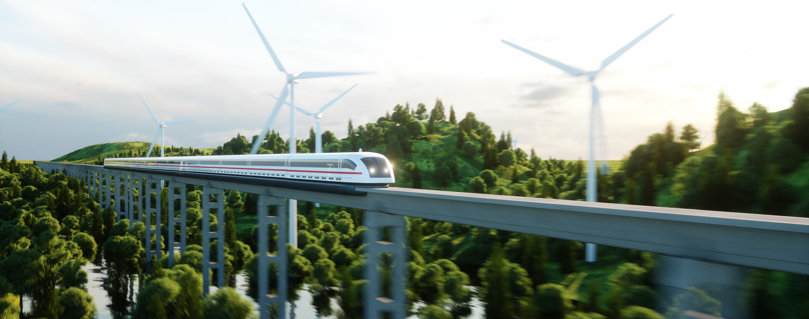Scandinavia – a future testbed for Magnetically Levitated Transportation Systems?

Blekinge Institute of Technology and Associate Professor Henrik Ny have recently been appointed to organize the 26th International Conference on Magnetically Levitated Systems and Linear Drives, Maglev2024, to be held September 2024 in the cities of Malmö and Copenhagen.
The International Conference on Magnetically Levitated Systems and Linear Drives is the world’s most prestigious academic Conference in its field.
The decision for Scandinavia was announced in the closing ceremony of the Maglev 2022 Conference in Changsha, China. It is the first time that the conference will be held in Scandinavia since its start in 1977 in Boston, USA.
In a tough competition, Scandinavia was able to prevail over competitors from several European countries.
“Above all, the thematic approach of Blekinge Institute of Technology with its strong focus on resource efficiency, ecology and development scenarios was convincing here,” emphasises Prof. Johannes Klühspies, President of the International Maglev Board (IMB), who strongly supported the Scandinavian bid.
The Vice-Chancellor of Blekinge Institute of Technology, Mats Viberg, is also excited about the upcoming event:
“For Blekinge Institute of Technology, BTH, and its partners and sponsors, it is an honour to organise an international conference such as this one and a huge opportunity to show the Institute and the region to the world.
There is a lot of research and development going on in this area today in China, Japan, South Korea and Germany. Several tracks are also in operation. Preliminary studies carried out by Henrik Ny indicate that magnetic trains could contribute strongly to the ongoing efficiency improvements and electrification of the transport sector and compete with both traditional high-speed trains and domestic flights:
“Magnetic trains could become the next generation transport system. Trains run using this method are quieter, faster, more efficient and they have much lower maintenance costs. In addition, the bridge track can be built with half as much concrete and fewer tunnels are needed than for traditional high-speed trains, so the construction cost can also be lower for magnetic trains, says Henrik Ny.
Project manager Martin Prieto Beaulieu explains the focus for the MagLev 2024:
“We want to engage the next generation of engineers, provide a platform for all Maglev technologies and offer sustainability simulations for future-proofing of the new technologies. This is based on BTH’s 30 years of experience in strategic sustainability research, he says.
Contact information
Associate Professor Henrik Ny, henrik.ny@bth.se
3 November 2022